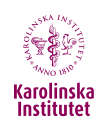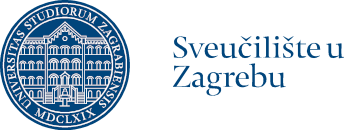Introduction to Global Standards in Medical Education
- A global need for more doctors
In recent years, the global shortage of physicians has become increasingly acute and a 2022 study by the World Health Organisation (WHO) indicated that 6.4 million more physicians were needed for universal health coverage. A number of factors have contributed to this deficiency, including a retiring workforce, growing populations especially in developing countries, natural disasters, global health crises, and access to medical education. While one of the potential and more immediate solutions would be to recruit and train more medical students, it is also important to ensure that a high quality of education is maintained and that there is a high student retention rate.
- English language medical programs
For many decades, Central European medical schools have provided training in the English language for a large number of international students within their programmes. Since 2004, internationalised medical education has become a strategic business model that is funded by the European Union. The tens of thousands of medical students who qualify as physicians from these Central European programmes form a significant and necessary addition to the global medical workforce. However, despite the long tradition of excellent training provided by these medical schools, it has come to light in recent years that their programmes may not yet be fully eligible for accredition by the World Federation for Medical Education (WFME),
- Global competition drives global standards
The World Federation of Medical Education (WFME) was founded in 1972 in Copenhagen by the World Medical Association (WMA) and the World Health Organisation (WHO). A non-governmental organisation, the purpose of the WFME is to promote and ensure a high quality in medical education for physicians, trainees and students. Currently registered in the UK and France, its three main projects are as follows:
· Creating global standards for the quality improvement of medical education
· Managing and updating the World Directory of Medical Schools
· Organising the accreditation programme for medical schools
- Local needs to implement global standards
To ascertain the needs of Central European medical schools with regard to their applications for accreditation by the WFME, a needs analysis was prepared for the Erasmus+ LEANbody project. Based on the results of a survey which was distributed to anatomists in Hungary, the Czech Republic and Croatia, the analysis showed that over 70% of anatomists in Central Europe had only minimal knowledge about the international quality standards of medical education. In addition, they were unfamiliar with or had never heard of the concept of student-centred pedagogy; they were unaware of the importance of development of the professional attitudes, behavours, values and skills of their students; and they lacked a good understanding of the principles of mental health management within the student population and in the workplace. Through the conferences, workshops and multiplier events that have been held during the 3-year duration of the Erasmus+ LEANbody project, participants from the University of Pécs in Hungary, Masaryk University in the Czech Republic, and the University of Zagreb in Croatia were introduced to the above principles.
- Local myths about high quality medical education
However, in order to enable Central European anatomists to embrace and implement the changes that are necessary within their anatomy curricula, it is crucial at the outset to dispel some of the misconceptions that many of them may already hold with regard to medical education, and especially anatomy teaching. In Topic 1, we endeavour to expose the fallacies that may still exist, and provide recommendations for how changes can be made in anatomy teaching programmes that can reduce failure rates, increase retention rates and ultimately, produce well-qualified physicians who can join the global workforce.






